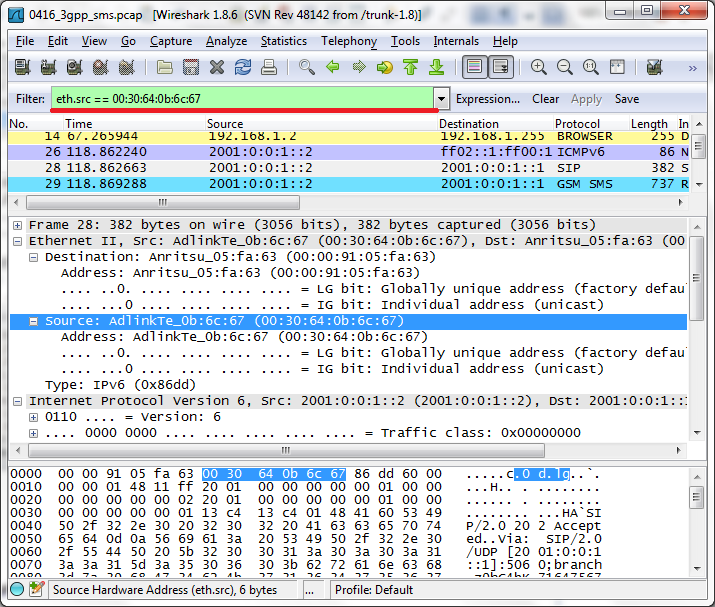

- #Wireshark filter by ip how to#
- #Wireshark filter by ip full#
- #Wireshark filter by ip code#
- #Wireshark filter by ip mac#
#Wireshark filter by ip how to#
In this article we will learn how to use Wireshark network protocol analyzer display filter.Īfter downloading the executable, just click on it to install Wireshark. Wireshark is one of the best tool used for this purpose. With tshark, -Y "display filter" also needs to be double-quoted.While debugging a particular problem, sometimes you may have to analyze the protocol traffic going out and coming into your machine. Given that this is GET, it’s better to just search the ‘http’ protocol: http matches "https?.*?\.ru.*?worm" If this seems like greek, you can explore it on regex101. Luckily, Wireshark gives you matches which uses PCRE regex syntax.Ī simple one that satisfies this is https?.*?\.ru.*?worm. Starts with ‘http’ or ‘https’, has the Russian ‘.ru’ domain, and contains the word ‘worm’ in the query string. You’re looking for an HTTP GET that contains a request for a URL that You cannot use matches and contains with fields that have a number type like int. Matches will search with a regex while contains searches for exact byte sequences. Sometimes you want to search packet data and a display filter won’t cut it. You can change filters just like Wireshark’s GUI to see what’s happening. Termshark is the way to analyze a capture in the terminal.

One of the biggest differences between tshark and Wireshark is that you can change the You couldĭo this with two passes or by calling tshark twice. There are few circumstances where this relevant, but I can make a contrivedĮxample: Let’s say that you want the 5th arp frame in a capture. Passes, you can specify the first and second with -R -2 -Y. If you would like to optimize display filtering over 2
#Wireshark filter by ip code#
bash$ tshark -G | grep -E "http\.response\."į Response line ğT_STRING http 0x0į Response Version ğT_STRING http 0x0 HTTP Response HTTP-Versionį Status Code ğT_UINT16 httpěASE_DECĐx0 HTTP Response Status Codeį Status Code Description ğT_STRING http 0x0 HTTP Response Status Code Descriptionį Response Phrase ğT_STRING http 0x0 HTTP Response Reason Phrase In this example, use http.response, and escape the periods. bash$ tshark -G | grep -E "sec_websocket_version"į Sec-WebSocket-Version c_websocket_versionğT_STRING http 0x0
#Wireshark filter by ip full#
If we already know what the field name is, we can get the full display filter by searching for it. Tshark -G will print all protocols, so you can use it in conjunction with grep to find fields of interest. Sometimes you know the protocol you’re looking for, just not the relevant fields you need to filter with. If you like C-style syntax, you can also use & instead of and and || instead of or.
#Wireshark filter by ip mac#
įor example, source MAC address becomes eth.src.




 0 kommentar(er)
0 kommentar(er)
